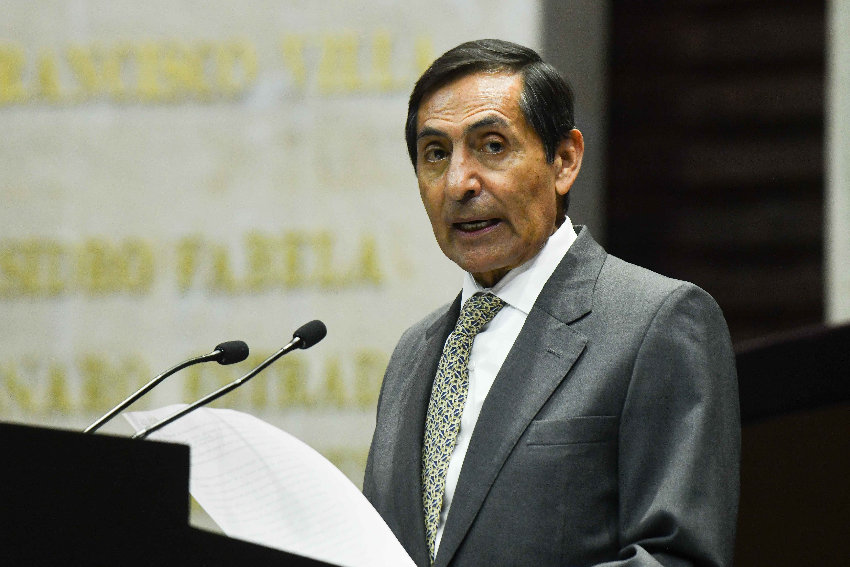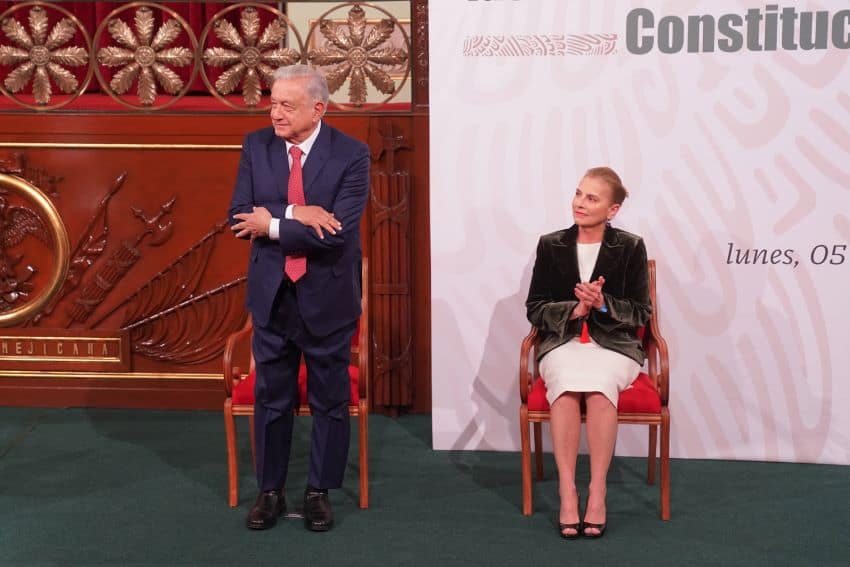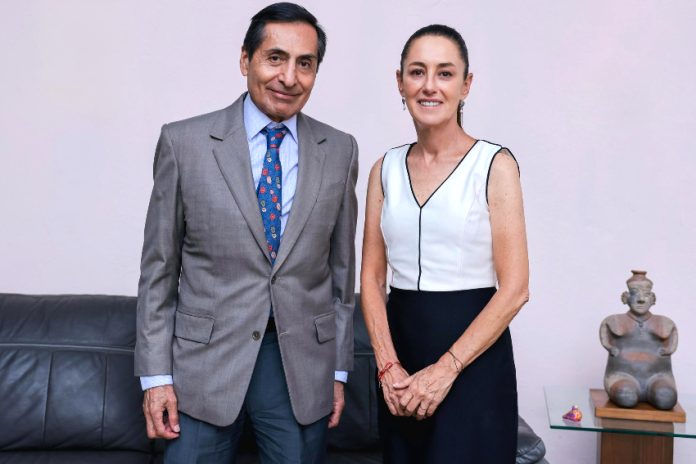President-elect Claudia Sheinbaum has endorsed a set of economic commitments outlined by Finance Minister Rogelio Ramírez de la O in an attempt to calm markets after the Mexican peso and the Mexican Stock Exchange (BMV) lost ground following the ruling Morena party’s decisive win in elections on Sunday.
Sheinbaum, who will take office on Oct. 1, said on social media on Tuesday that she had met with Ramírez — who will stay on as finance minister when the new president takes office — and that they “ratified the economic line” he set out.

In a statement on Tuesday, the 75-year-old economist said that as finance minister he would ensure:
- The reduction of public debt to levels compatible with a sustainable debt-to-GDP ratio “in the medium term.”
- That “all communication with investors and rating agencies” is updated to “confirm our priorities: macroeconomic stability, fiscal prudence and the viability of our fiscal objectives.”
- The strengthening of collaboration with (the heavily-indebted) state oil company Pemex, “taking advantage of support in Congress to optimize the good use of public resources.”
- The confirmation to international organizations and investors that “our project is based on financial discipline, respecting the autonomy of the Bank of Mexico, adherence to the rule of law and facilitating private national and foreign investment.”
Ramírez, finance minister since 2021, also spoke to investors and analysts on Tuesday in what the Financial Times described as a “hastily scheduled call.”
During a two-minute call in which he emphasized the commitments listed above, he didn’t address concerns over proposed constitutional reforms that the Morena party and its allies could approve in Congress thanks to the large majorities they won in the Chamber of Deputies and the Senate in elections on Sunday.
The Morena-led coalition easily won a two-thirds majority in the lower house of Congress and is expected to get close to achieving a super majority in the Senate as well. It could thus approve constitutional reforms that were proposed by President Andrés Manuel López Obrador and which are supported by Sheinbaum with the support of just a few opposition senators.

Submitted to Congress in February, those proposals include ones to allow citizens to directly elect Supreme Court justices and other judges; eliminate numerous autonomous government agencies; incorporate the National Guard into the military; and overhaul the pension system.
Concerns over the likelihood that Morena will indeed be able to approve constitutional reforms once the recently-elected lawmakers assume their positions in September caused both the peso and the BMV to take a post-election tumble.
The peso depreciated again on Tuesday, but appreciated on Wednesday to trade at 17.56 to the US dollar shortly after midday Mexico City time. The BMV’s benchmark index rose more than 3% on Tuesday after falling over 6% on Monday.
Aaron Gifford, a sovereign credit analyst at investment management firm T Rowe Price, told the Financial Times that Ramírez’s call with investors had not allayed concerns about the make-up of Mexico’s next Congress.
“It seems like we’ll have to wait for more details around the transition plan, especially given fears of AMLO pushing through some reforms during the month that he overlaps with the new congress,” he said.
For its part, the Association of Mexican Banks said in a statement on Tuesday that the announcement that Ramírez will remain finance minister after Oct. 1 sends a “powerful message” to the global financial community and international markets that “Mexico will continue with a solid and disciplined economic and financial policy oriented toward strengthening economic growth.”
Sheinbaum made that announcement in a video message on Monday, and pledged that her government would “act with dialogue, harmony and a lot of responsibility.”
With reports from Milenio, El Economista and The Financial Times
